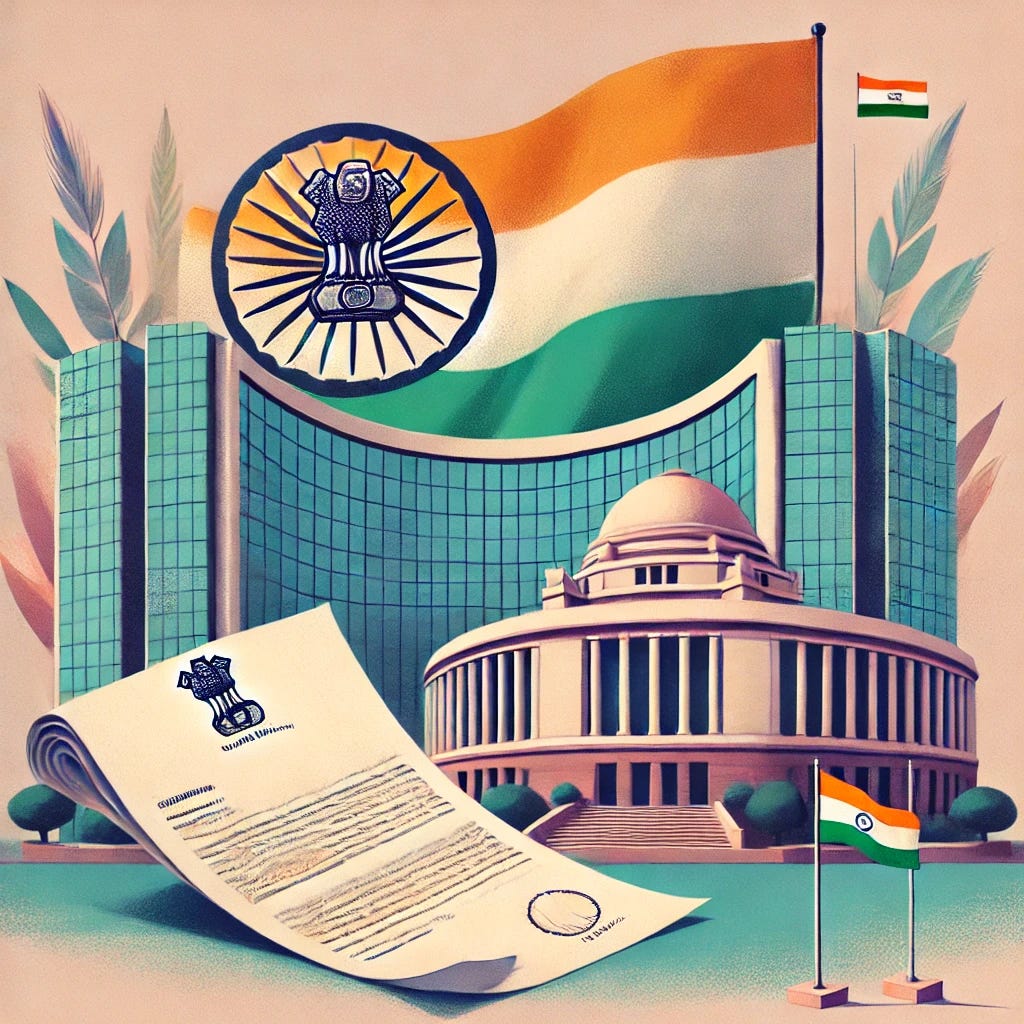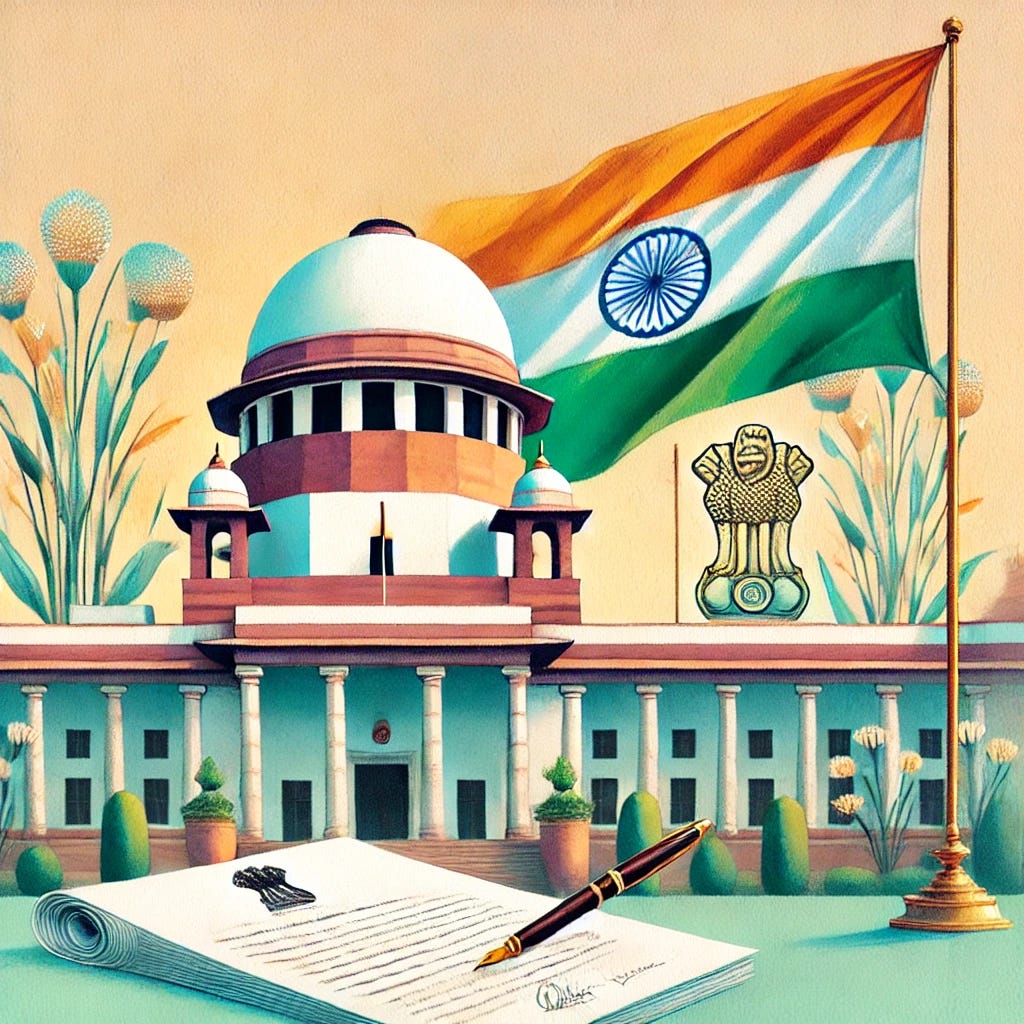Lokpal's Interim Order on Mahua Moitra’s Complaint Against SEBI Chief; No Preliminary Inquiry Yet, Additional Affidavits Demanded
Lokpal's Interim Order: A Critical Review; next date 17th October, 2024.
Lokpal's Interim Order: A Critical Review
The Lokpal of India, in its interim order issued on Saturday (September 21) on complaints against SEBI Chairperson Madhabi Puri Buch, has raised several procedural and evidentiary issues, placing the onus on the complainants to furnish more credible material. The complaints, filed by TMC MP Mahua Moitra and former IPS officer Amitabh Thakur, revolve around allegations of impropriety and misconduct, largely based on the Hindenburg Research report. While the Lokpal's order appears to follow the due process, it raises serious questions regarding its approach to investigating high-profile allegations of corruption.
Below, we delve into six crucial aspects of this interim order.
1. Hasty Submission of Complaints
The Lokpal’s order notes that the complaints were filed in haste, almost immediately after the Hindenburg report’s release, without sufficient independent verification of the allegations. The Lokpal pointedly questions why the complainants did not take more time to gather corroborative material before lodging such serious accusations. This brings into focus the need for complainants to exercise due diligence before filing, but it also risks discouraging whistleblowers who may lack the resources for independent verification of large-scale financial impropriety.
2. High Burden on the Complainants
One of the more contentious aspects of the order is the significant burden placed on the complainants. The Lokpal has instructed them to file affidavits containing more detailed facts and specific allegations, as required under the Prevention of Corruption Act, 1988. This procedural demand may appear excessively stringent, potentially creating a barrier for citizens who, despite raising legitimate concerns, may lack direct access to credible insider information. Their complaints are often based on surgically precise allegations from widely recognised and "credible" sources. While such stringent requirements are designed to prevent frivolous complaints, they also risk discouraging whistleblowers and making it more challenging to hold powerful individuals accountable.
3. Narrow Focus on the Prevention of Corruption Act
The Lokpal’s interpretation of what constitutes "offences of corruption" appears constrained by narrow, conventional legal definitions. In regulatory bodies like SEBI, corruption often takes more subtle and complex forms—such as conflicts of interest, regulatory leniency, or institutional mismanagement—which do not always align with traditional notions of bribery or quid pro quo. This narrow focus risks overlooking broader, systemic issues that may still erode public trust in financial regulation. At this preliminary stage, the learned Lokpal seems to have assumed a role more akin to that of a Special Judge, as if already considering the framing of charges under the Prevention of Corruption Act, 1988, after a detailed investigation has been concluded by a competent, independent agency such as the CBI. This approach may undermine the purpose of early-stage inquiries, where the emphasis should be on determining whether a full investigation is warranted, rather than imposing stringent evidentiary requirements prematurely.
4. Incorrect Reliance on Supreme Court Orders
While the Supreme Court’s orders on the Adani Group investigations, based on the Hindenburg report, relied heavily on SEBI's findings, they do not restrict the Lokpal from conducting a preliminary inquiry into allegations against the SEBI Chairperson in her personal capacity as a public servant. The Lokpal's order has referenced previous Supreme Court decisions, particularly the judgment dated 3 January 2024, which acknowledged SEBI’s completion of 22 out of 24 investigations into the Adani Group and declined to interfere with SEBI’s ongoing work. However, these Supreme Court orders pertained to SEBI as an institution and its investigations into the Adani Group, not to the individual conduct of the SEBI Chairperson herself.
The Lokpal’s inquiry, in this instance, focuses on the Chairperson’s actions as a public official, and thus operates in a different legal context. The references to earlier Supreme Court rulings are relevant but do not preclude the Lokpal from initiating its own investigation, especially given the fresh allegations brought forth in the new Hindenburg report. The Lokpal has rightly asked the complainants to clarify how their claims differ from matters already addressed by the Supreme Court, but this does not negate the need for a separate examination of the Chairperson’s role as an individual public servant.
5. Reluctance to Initiate a Preliminary Inquiry
Another critical aspect of the Lokpal’s order is its reluctance to initiate a preliminary inquiry. Rather than taking a proactive stance, the Lokpal has shifted the burden of gathering evidence onto the complainants. This cautious approach raises concerns that the watchdog may be missing a vital opportunity to investigate serious allegations at an early stage—especially when financial impropriety, often complex and hidden, is difficult to uncover without full access to institutional records. The role of SEBI as the market regulator is crucial not only for ensuring transparency in India’s stock markets but also for shaping overseas investors’ confidence, whether through FDI or listed securities. In this context, where "Caesar’s wife must be above suspicion," the Lokpal’s reluctance to proceed with even a basic preliminary inquiry could undermine trust. It misses a significant opportunity to dispel clouds of suspicion and rumours. By transferring the onus of conducting a preliminary inquiry to the complainants—who, as private citizens, lack the expertise, resources, or legal authority to access documents or record witness statements—the Lokpal risks weakening the effectiveness of its mandate. Such hesitation could compromise the broader goal of ensuring accountability in India's regulatory framework.
6. Downplaying New Information apart from the Hindenburg Report
The Lokpal’s order seems to downplay the significance of the latest Hindenburg report, citing its similarities with a previous report already scrutinised by the Supreme Court. This approach risks overlooking new revelations or details that could warrant further investigation. Dismissing potentially fresh information without thoroughly examining its implications may weaken the Lokpal’s standing as an impartial watchdog and a diligent investigator. Moreover, new allegations have since surfaced, unrelated to the Hindenburg report, suggesting that certain listed companies may have paid rent or consultancy fees to Ms. Buch or her husband while these companies had matters pending with SEBI. These claims are independent of the Hindenburg report and deserve to be investigated on their own merit.
To bolster its credibility and avoid perceptions of bias, the Lokpal could issue a public notice inviting further information from the public, including current and former SEBI employees, under confidential terms. This would serve the dual purpose of preventing a multiplicity of complaints while ensuring that the inquiry remains focused and does not devolve into a "fishing and roving" exercise, which the Supreme Court has previously ruled against, in general. By encouraging transparency and public participation, the Lokpal would enhance its legitimacy and reinforce its role as a key institution in the fight against corruption.
The Double Standard in Lokpal’s Approach: A Tale of Two Cases
The Lokpal’s handling of the "cash for questions" allegations against MP Mahua Moitra presents a stark contrast to its approach in dealing with her complaint against SEBI Chairperson Madhabi Puri Buch. In the case involving Moitra, BJP MP Nishikant Dubey lodged a complaint accusing her of accepting gifts from businessman Darshan Hiranandani in exchange for targeting the Adani Group and Prime Minister Modi through parliamentary questions. The Lokpal acted with notable swiftness, referring the matter to the CBI for a preliminary enquiry almost immediately, bypassing the need for an extensive investigation of its own. This quick referral, devoid of a detailed preliminary examination, raises concerns about the thoroughness of the Lokpal’s initial assessment.
More strikingly, the Lokpal omitted a key procedural step by not recording the statement of Darshan Hiranandani, the businessman alleged to have offered the bribes. The absence of this crucial witness’s testimony at the preliminary stage further amplifies concerns about the process. The subsequent formal investigation order, issued by the Lokpal on March 19, 2024, directing the CBI to conduct a full investigation, contrasts sharply with the slower, more cautious approach in Moitra’s own complaint against the SEBI Chairperson.
In summary, the Lokpal’s contrasting treatment of these two cases has set a troubling precedent. The watchdog's inconsistent approach could erode public trust in its ability to handle sensitive matters with fairness and rigour, raising concerns about its long-term credibility as an impartial guardian of integrity in public life.
Credibility of the Lokpal and Justice Khanwilkar at Stake
As the next hearing is scheduled for 17 October 2024, the credibility of both the Lokpal and Justice Khanwilkar, as the Chairperson of the Lokpal of India, who is overseeing the matter as the head of this statutory institution, will come under public scrutiny. Given the serious nature of the allegations and the high-profile individuals involved, the nation will be closely watching the proceedings. The Lokpal, as an institution, must demonstrate its commitment to transparency and accountability, ensuring that procedural delays do not obscure the truth. The final outcome will be a litmus test for the Lokpal’s role in upholding justice in cases involving powerful public officials.
Summing Up
While the Lokpal's insistence on affidavits and specific allegations is rooted in procedure, it risks placing an undue burden on complainants and potentially allowing serious allegations to slip through the cracks. The complainants, both of whom are respected individuals, now face the task of submitting additional evidence without exposing themselves to undue personal risk. The next steps in this process will not only test the credibility of Justice Khanwilkar but also the institutional strength of the Lokpal itself. The nation is watching, and the truth must emerge.
Let’s wait for 17th October and see what transpires further.
Citations:
Here are pithy clickable headings for the citations:
Moitra Lodges Complaint Over SEBI Chief’s Alleged Adani Links
Fresh Petition Seeks SEBI Probe Completion in Adani-Hindenburg Case
Lokpal Questions Rush to File Complaint Post-Hindenburg Report
Ms Buch:
Further Citations in respect of Ms Mahua Moitra’s case being referred to the CBI
Here are some clickable links based on the news sources for the Lokpal’s handling of the "cash for questions" allegations against Mahua Moitra:
Initial Complaint by BJP MP Nishikant Dubey accusing Mahua Moitra of targeting the Adani Group and PM Modi at the behest of Darshan Hiranandani in exchange for gifts: Indian Express | India Today
Lokpal's Quick Referral of the case to the CBI for a preliminary enquiry: India Today | Business Standard
Lack of Detailed Preliminary Enquiry: Business Today | The Hindu
Omission of Key Witness Statement, notably not recording Darshan Hiranandani's account: India Today
Moitra's Response denying any wrongdoing and claiming political targeting: Times of India | ABP Live
Recent Developments, including the Lokpal ordering a formal CBI investigation and the timeline for reports: LiveLaw | Business World
Contrast with Moitra's Complaint against SEBI Chairperson, and questions about the Lokpal’s procedural consistency: The Hindu
These links will provide you with more detailed context and insights into the case.




ਪਾਪ ਕਰੇ ਕਰ ਮੂਕਰ ਪਾਵੈ ਭੇਖ ਕਰੈ ਨਿਰਬਾਨੈ